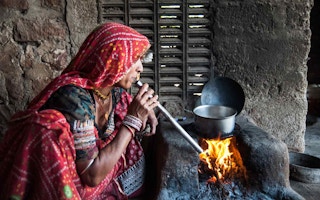Policies to mitigate climate change impacts can raise the price of clean cooking fuels and make them inaccessible to millions who need them most.
However, researchers at the International Institute of Applied Systems Analysis (IIASA), Austria, find that proper climate change policy design can attract funds under international climate agreements to counteract clean fuel price hikes.
Researchers from the IIASA studied how different climate policies would impact access to clean cook-stoves and fuels. They found that, under the most stringent mitigation scenarios, clean cooking fuel costs would shoot up by 38 per cent in 2030, rendering them unaffordable for 433 million South Asians.
This also would lead to a 44 per cent spike in the minimum support policy cost to achieve universal access to clean cooking fuels and stoves by 2030. This is bad news for South Asia, particularly. According to experts, despite focussed efforts by the governments and non-governmental organisations to introduce clean cooking technologies, more than 700 million South Asians would still be using traditional stoves burning solid fuels in 2030.
“Increasingly, countries want to achieve a multitude of objectives simultaneously. Environmental goals need to be achieved while simultaneously striving to attain socio-economic objectives, and socio-economic concerns need to integrate the environmental dimensions too,” says Shonali Pachauri, a senior research scholar at IIASA, who participated in the study.
The report notes that achieving such goals requires a deep understanding of the interplay between different policies, calling for integrated analyses. For example, consider a stringent international climate agreement in which emitting countries agree to pay US$ 30 per tonne of CO2 they emit.
IIASA researchers argue that if the policies were designed to differentiate mitigation efforts based on per capita emissions, South Asian countries may receive assistance of up to US$ 71 billion by 2030, which is far greater than the increase in policy cost to achieve energy access goals.
“The authors have quantified in detail the costs of achieving universal access to energy by 2030 for a range of climate policy scenarios as well as considering different fuels and cook stove price support policies,” Debajit Palit, associate director and senior fellow at The Energy and Resources Institute (TERI), New Delhi, tells SciDev.Net. -










